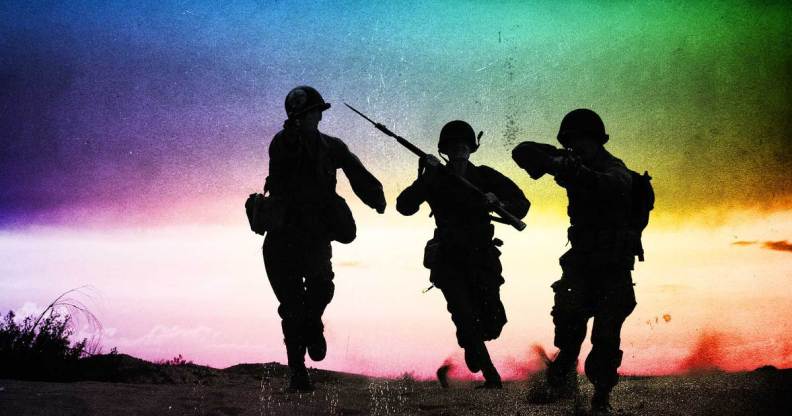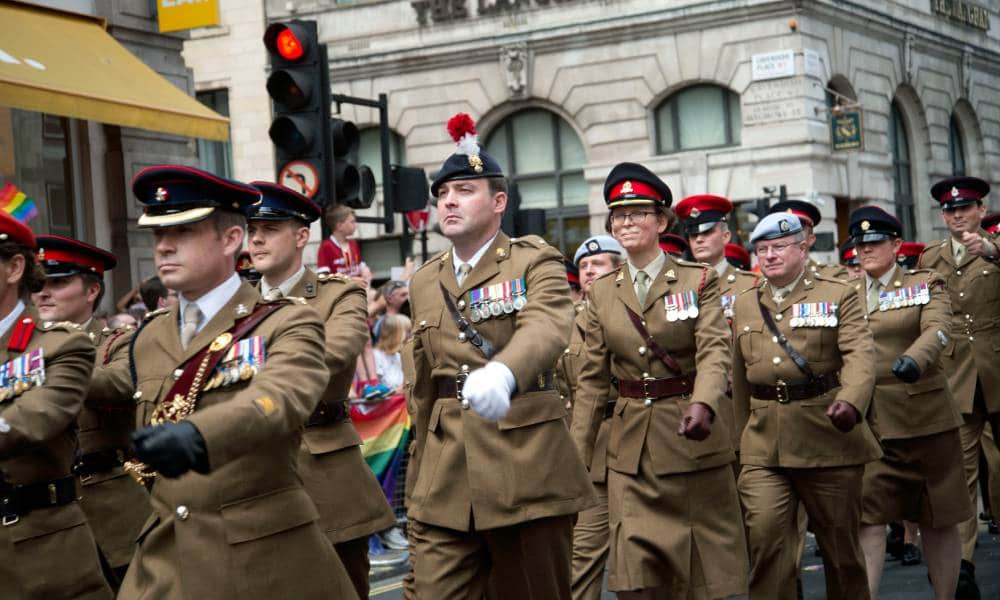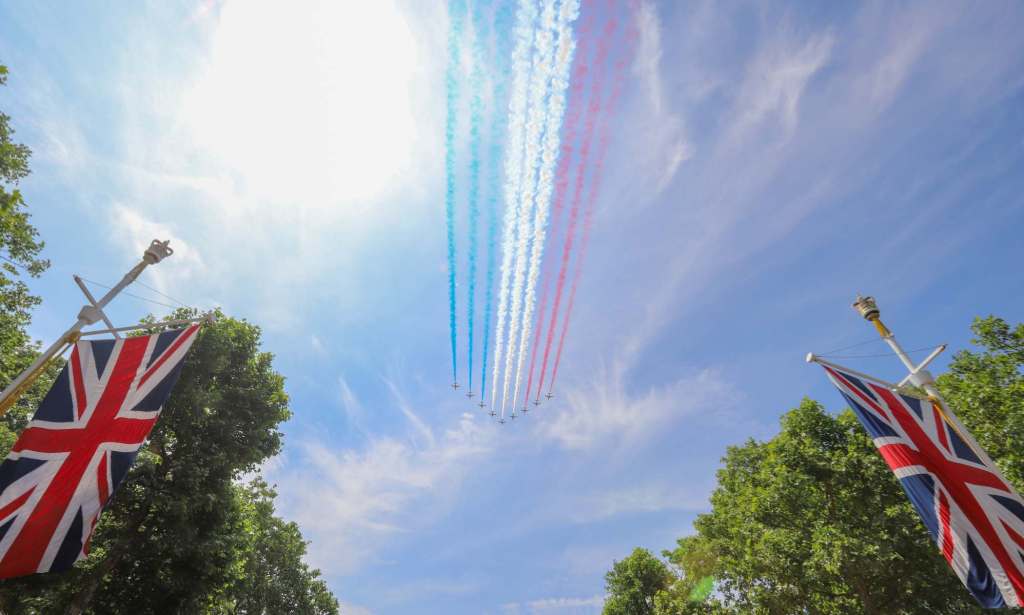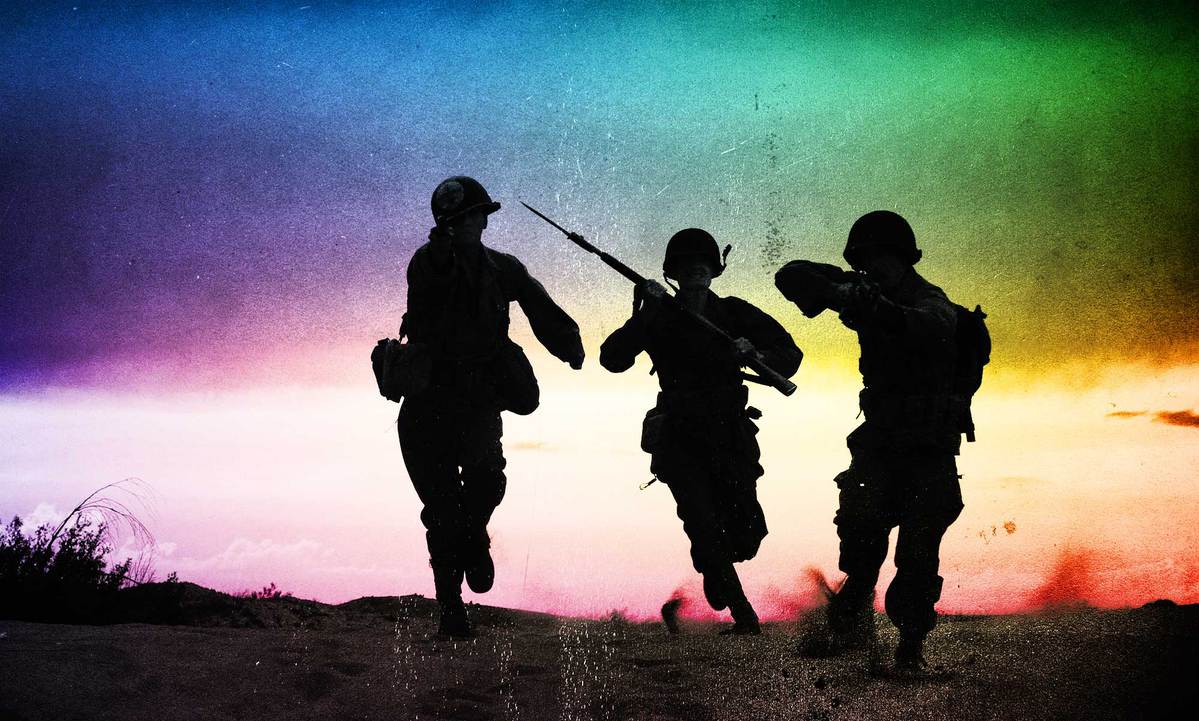
A debate on the reparations owed to LGBTQ+ veterans for their treatment under the pre-2000 gay ban is set to go ahead. (PinkNews)
A parliamentary debate on the treatment of veterans as a result of the “gay military ban” is set to be held in the new year as the government backtracks on its plans to cancel.
The debate will iron out what reparations should be made to military veterans who were forced out of the armed for being or appearing gay.
Up until the year 2000, LGBTQ+ people were banned from serving in the British military. The ban ked to homophobic abuse and harassment and saw many veterans wrongfully expelled and left without a stable income or pension after their service.

This July, an independent review into the ban and its repercussions was published, including testimony from thousands of veterans who detailed being subject to bullying, violence, and sexual assault, as well as being unable to claim their pensions.
As a result, then-Defence Secretary Ben Wallace promised that a debate would be held in Parliament on how best to make reparations to veterans who were wronged.
However, earlier this month, there was heavy backlash from military charities when it was reported that the government had decided to scrap the debate and issue a statement instead.
Fighting With Pride slammed the government’s “unacceptable act of erasure”, while RAF veteran David Bonney, who was imprisoned for being gay in 1995, suggested that “homophobes must have the ear of the prime minister.”
But, it would appear that the government has backtracked on plans to cancel the debate, after all.
BBC News reports that the debate is now scheduled to go ahead in 2024 and that veterans who were affected by the gay military ban can now register their interest in applying for reparative schemes.
While some restorative measures are available to wronged veterans now, details about financial compensation are due to be made available in the new year.

Commenting on July’s independent review on Wednesday (13 December), Defence Secretary Grant Shapps said that the government would “continue to right the wrongs of the past.”
He continued: “The way that LGBT personnel were treated between 1967 and 2000 was unacceptable.
“Our response to Lord Etherton’s review demonstrates the positive action we are taking to help rectify this regrettable chapter in the history of the armed forces.”
Although the government has warned that they will not be able to “write a blank cheque”, military charities and advocacy groups are demanding that the current £50 million cap on the total fund for veterans be lifted.
An open letter signed by groups like The Royal British Legion and Help for Heroes read: “We are pleased to hear the government accepts the recommendations of the review and has today taken steps to invite those affected by the ban to apply for restorative measures and indicate interest in the compensation scheme.
“We remain concerned that an arbitrary cap on the total amount that will be offered in compensation is unfair.
“Many of those who stepped up to serve our country were then subject to criminalisation, loss of earnings and pensions, and abuse. And we owe it to them to recognise the sacrifices they made and compensate them for the harms they endured.”
